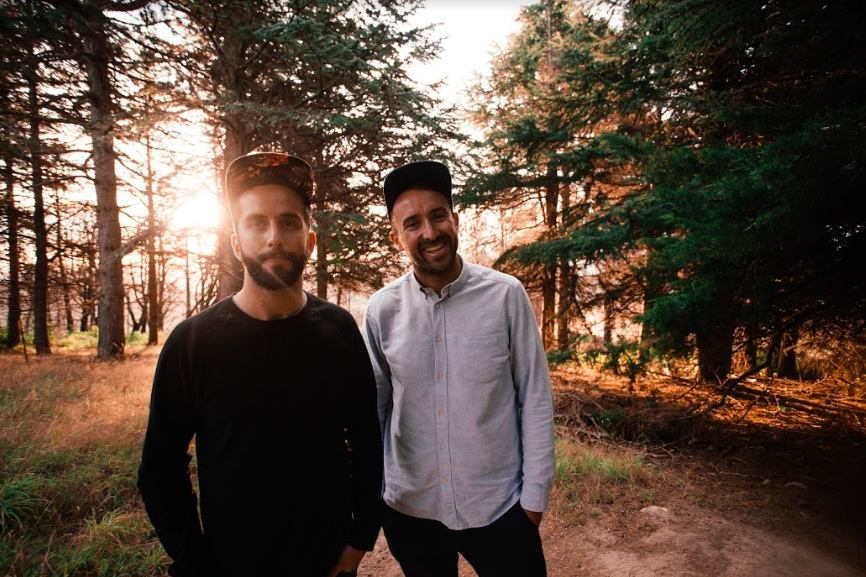Waste not, want not: scraps-to-caps company Offcut turns its eye to tackling plastic

From a quick glance at the holiday snaps of Bali on Instagram, one would think the coasts and oceans are pristine and untouched. But while some locations off the island fit this stereotype, it is also harbouring a not-so-glamourous side: a serious plastic pollution problem, which is gaining momentum in the media.
A video clip of British diver Rich Horner that went viral earlier this year shows him slowly drifting through swathes of rubbish off the coast of Bali. At a glance, the plastic bags floating past might be mistaken for jellyfish. On closer inspection, the reality isn’t so magical. Officials in Bali even declared a “garbage emergency” earlier this year, with up to 100 tonnes of rubbish being collected off the beaches by cleaners some days.

Offcut co-founder Adrien Taylor says the company – which was founded in Christchurch and is known for producing caps from scrap materials destined for the landfill – relocated itself in Bali for two months to use it as a base to source fabric by-products for its caps, while giving its staff a chance to enjoy the warmer climate. However, he says they couldn’t help but be shocked by how bad the plastic pollution issue was there.
“Plastic is everywhere you look — from the small local restaurants wrapping food in it, to the thousands of water bottles you see people walking down the street with. Even when you’re out in the surf, you can’t escape it, because it floats up beside you or gets tangled in your rope,” Taylor says.
“It didn’t take us long to see why the plastic problem is finally getting the public attention it deserves.”
The idea for Offcut came when Taylor was walking through his father’s Christchurch curtain business and came across a room of material destined for the landfill because the pieces were too small to be used as curtains. Those textile scraps are used as the fabric for the hats, but now, he says Offcut is currently looking at ways it can make its caps out of 100 percent made of discarded materials by making the plastic inserts of the cap peaks from recycled waste plastic, but it’s very early days.

In the meantime, however, with him and co-CEO Dan Price both boasting a background in film making (they’ve made two films for the United Nations about climate change) they decided the best way currently to raise awareness in present day was to make a mini-documentary about the issue.
“Offcut is all about trying to undo some of the harm we humans are causing to our planet,” Taylor says. “We’re actively working towards using recycled plastic salvaged from oceans to make parts of our hats, but really the only reason we did this is because we’re horrified at the scale of the plastic problem. It’s truly alarming.
“The whole purpose in our business is to stop resources — textile offcuts — from ending up in landfill, but we’re equally passionate about preventing plastic from ending up in the ocean. So there’s no way we could be surrounded by the issue without wanting to do something about it,” Taylor says.
The five minute mini-documentary features interviews with the aforementioned Rich Horner, whose footage of Bali’s rubbish problem went viral, as well as Billabong surfer Tai Graham, who has lived on the island since he was a child.
The short-term goal of the video? To get people to sign up to volunteer to help at a local beach clean-up as part of the International Clean-Up event happening this Saturday 15 September, but long-term, Taylor says it’s to get people to stop using single-use plastic.
And though it might seem like a side step, this move ties into Offcut’s brand ethos, which is that sustainability trumps all. It takes to this to extremes, to the point where if it succeeds in its goal of inspiring every industry to use 100 percent of their by-products, it will have put itself out of business.
But Taylor says this shows people the brand is dedicated to what it’s doing.
“The message we’re spreading about sustainability is infinitely more important than the longevity of our business,” Taylor says.
“The thing we have to keep reminding people is that unless we take sustainable development seriously, no one anywhere will have a business worth worrying about. We’re on the brink of ecological collapse in so many parts of the planet and climate change is on the verge of fundamentally changing the lives of billions of people so the longevity of Offcut — or any business — becomes totally irrelevant with that kind of perspective. Nothing is more important than taking care of our home.
“Having said that, us humans have a track record of being slow to act on the things which matter most, so I’m certainly not concerned about being put out of business anytime soon. I’d love it if we were, though.”
For those wanting to take part in the International Coastal Clean-Up day, you can sign up for it via Offcut’s site and get all the low down on what’s happening around your city – rumour has it Sustainable Coastlines also has clean-up kits available to borrow in Auckland and Wellington.




